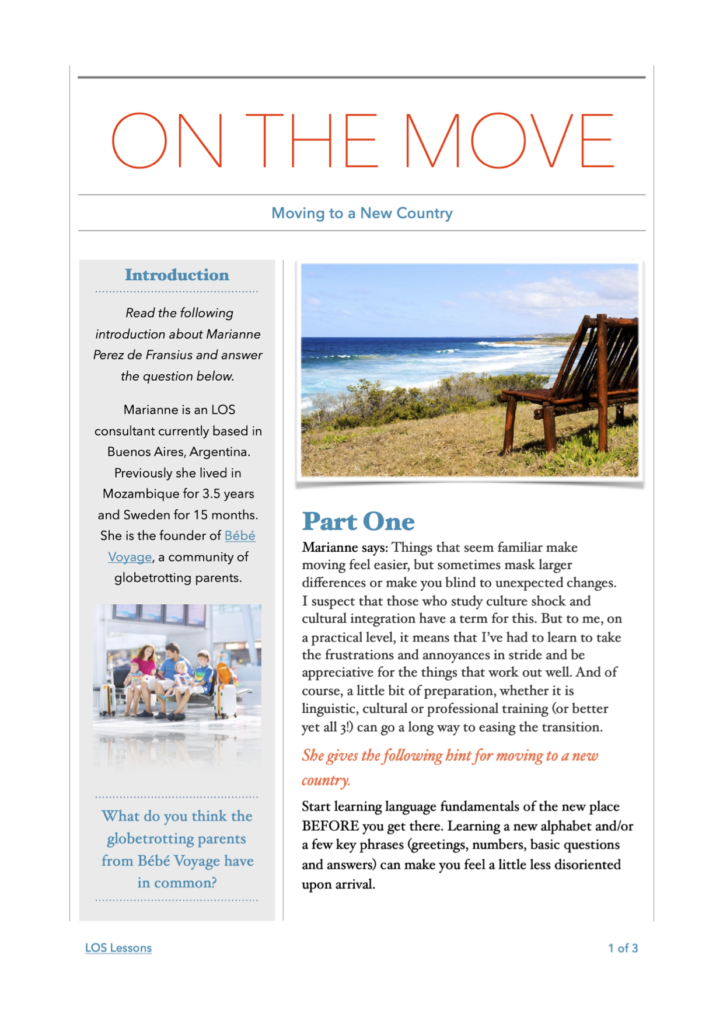In my third international (intercontinental, really) move in five years, I hoped that the process would become easier and that I would find more of a flow which thus far has eluded me.
Perhaps it’s because I have not yet perfected my box packing and unpacking method. But I think it’s because, along with the outer, physical box moving, I am also doing some internal heavy-lifting.
Moving (especially to a different country) has forced a certain introspection on me. It has pushed me to evaluate what is important to me, what I liked about my life in my previous location and what I want to change about it. It has also challenged my sense of identity. Am I really as self-reliant and stoic as I thought I had become or was it the environment that molded me that way? In my new city, I am finding that I am a lot more socially dependent. Am I naturally like that or is it because here the social web has ensnared me and drawn out my more social side?
I find that moving is a time of reckoning, a time to consider which parts of my self (and my stuff!) I want to keep and what I want to get rid of. It’s a time for me to reinvent and reinvest in certain aspects that perhaps were dormant or, for whatever reason, were inaccessible.
With that in mind, I share a few tips to hopefully make the transition for those embarking on an international move a little smoother:
- Keep some part of your personal routine completely portable so that you can jump back into it as soon as you land, i.e. if you like to exercise, make sure that some part of your exercise routine does not depend on finding a new team, the perfect gym or the equipment that has been packed in your container.
- Start learning language fundamentals of the new place BEFORE you get there. Learning a new alphabet and/or a few key phrases (greetings, numbers, basic questions and answers) can make you feel a little less disoriented upon arrival.
- If you are extra motivated, you can start reading local papers online or even listening to local radio. (TuneIn is my favorite app for this.)
- Make use of LinkedIn or ask your current network of friends and colleagues if they have any contacts for you in the new location. And don’t be afraid to reach out to them!
- Search for local groups on Facebook and MeetUp. Facebook often has identity based groups in various cities (i.e. expat-, parenting-focused etc.) whereas MeetUp is event-driven so usually centered on specific hobbies or interests and bringing people together around those.
On a final note, things that seem familiar make moving feel easier, but sometimes mask larger differences or make you blind to unexpected changes. I suspect that those who study culture shock and cultural integration have a term for this. But to me, on a practical level, it means that I’ve had to learn to take the frustrations and annoyances in stride and be appreciative for the things that work out well. And of course, a little bit of preparation, whether it is linguistic, cultural or professional training (or better yet all 3!) can go a long way to easing the transition. LOS is here to help you with all three!
You can learn more about moving abroad in the following DIY lesson.
Marianne Perez de Fransius, LOS Consultant and Co-founder of Bébé Voyage

